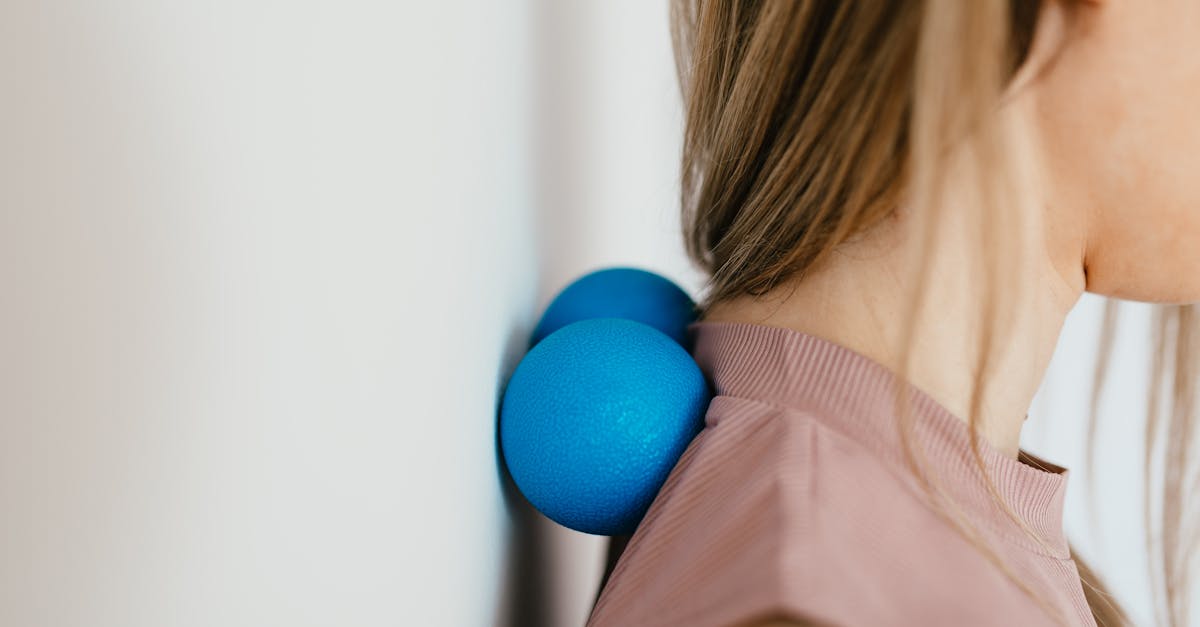If you’ve ever experienced the sharp ache, stiffness, and discomfort that comes with it, you’re not alone. But did you know that your sore neck muscle might also be the secret culprit behind those pesky headaches that seem to never go away? This article is your guide to understanding the perplexing connection between sore neck muscles and headaches, and how unraveling this mystery can be a game-changer for your overall well-being.
We won’t just scratch the surface here. Instead, we’ll dive deep, explore the nitty-gritty details, and uncover why it’s essential to get to the root causes of these problems. Along the way, we’ll back up our claims with eye-opening statistics and enlightening studies. And yes, we’ll introduce you to Pulse Align, a holistic approach that just might be your ticket to relief.
So, if you’re tired of living with that persistent pain in your neck (and the pounding in your head that often comes with it), buckle up for a journey to well-being that goes beyond the ordinary. Let’s get started!
Understanding the Prevalence and Causes
Before we dive into the nitty-gritty of sore neck muscles and their connection to headaches, let’s talk numbers. It turns out that this isn’t just a personal struggle; it’s a widespread issue. Studies show that a significant portion of the population experiences sore neck muscles and the often accompanying headaches.
Stat Attack:
- According to a study published in the Journal of Pain Research, about 15% of the global population suffers from chronic neck pain, a condition often stemming from sore neck muscles.
- The World Health Organization (WHO) reports that tension-type headaches are the most common type of headache disorder globally, affecting nearly 1.5 billion people.
So, if you’ve ever found yourself rubbing your neck while nursing a throbbing head, you’re in the company of millions who understand your pain.
The Usual Suspects: Common Causes of Sore Neck Muscles
Now that we’ve established the prevalence of sore neck muscles and headaches, it’s time to explore the culprits behind these nagging problems.
1. Poor Posture:
- In our modern, tech-savvy world, we often find ourselves hunched over desks or craning our necks to gaze at screens. This poor posture places undue stress on our neck muscles, leading to discomfort and pain.
- A study in the Journal of Physical Therapy Science revealed a direct link between poor posture and the prevalence of neck pain. This serves as a stark reminder of how our daily habits can affect our well-being.
2. Stress and Tension:
- Stress isn’t just in your mind; it can manifest physically too. Chronic stress and tension often take residence in our neck and shoulder muscles, causing them to tighten and become sore.
- Research conducted by the American Psychological Association highlights the physical implications of stress, reinforcing its connection to neck discomfort.
3. Muscle Overuse:
- We’re creatures of habit, and repetitive movements can take a toll on our neck muscles. Whether it’s from constantly looking down at your phone or performing repetitive tasks at work, muscle overuse can result in soreness.
- A study published in the Journal of Clinical Epidemiology underscores the relationship between repetitive movements and neck muscle discomfort.
The Need for Identifying Causes
Understanding the causes of sore neck muscles is not merely an academic exercise. It’s a critical step in finding effective relief. Treating symptoms alone is akin to putting a Band-Aid on a wound without cleaning it. By identifying and addressing the root causes, we set the stage for long-lasting, holistic well-being. In the sections to come, we’ll explore strategies to tackle these causes head-on and bid farewell to that nagging sore neck muscle and its companion, the headache.
Statistical Insights: The Burden of Sore Neck Muscles and Headaches
Let’s dig deeper into the numbers. The prevalence of sore neck muscles and headaches is not just a personal inconvenience but a substantial public health concern. Here are the statistics that illustrate the impact:
- According to a comprehensive study conducted by the World Health Organization, neck pain is ranked as the fourth leading cause of disability globally. This condition often leads to or exacerbates headaches.
- The American Migraine Foundation highlights that neck pain is a common trigger for tension-type headaches, which are among the most prevalent headache types.
- An eye-opening survey in the Journal of Chiropractic Medicine found that approximately 74% of individuals reported experiencing neck pain in the past year.
The Modern Lifestyle Factor: A Real Pain in the Neck
Modern life has brought us incredible convenience, but it’s not without its downsides, particularly when it comes to neck muscle health. The prevalence of sore neck muscles and headaches can be attributed, in part, to the way we live today:
- Extended screen time: Our constant engagement with electronic devices, from smartphones to laptops, means we’re often hunched over screens for hours on end. This posture puts enormous stress on the neck muscles.
- Sedentary habits: Our increasingly sedentary lifestyles, driven by desk jobs and lengthy commutes, contribute to the weakening of the muscles that support the neck and head.
- Lack of physical activity: Research published in the Journal of Occupational and Environmental Medicine shows that a sedentary lifestyle can lead to an increased risk of neck pain and associated headaches.
Understanding the Culprits Behind Sore Neck Muscles
Now, let’s get to the root of the problem – the causes of sore neck muscles and their connection to headaches. It’s essential to grasp why these issues manifest and persist:
1. Poor Posture: The Neck’s Worst Enemy
Picture this: you’re slouched over your computer, your phone, or maybe a book. Poor posture places a tremendous burden on your neck muscles. When your head juts forward, your neck muscles have to work harder to support the weight of your head. Over time, this strain results in soreness and discomfort.
2. Stress and Tension: A Physical Manifestation of Your Mental State
Stress is not just a mental battle; it’s a physical one too. When you’re stressed, your body tends to tense up, and the neck and shoulder muscles are common sites for this tension. The muscle tension not only leads to soreness but can also contribute to the development of tension-type headaches.
3. Muscle Overuse: The Perils of Repetitive Movements
Our daily routines often involve repeated, sometimes unnatural, movements that can overwork specific muscle groups. Constantly craning your neck to check your smartphone or maintaining a fixed position while working can result in muscle overuse and eventual discomfort.
C. Citing the Evidence
The connection between these factors and neck pain is not merely anecdotal. Researchers have delved into this complex relationship, providing valuable insights into how these elements are interconnected:
In a study conducted by the Journal of Pain Research, it was discovered that poor posture was a significant contributing factor to chronic neck pain, offering concrete evidence of the link between posture and neck discomfort.
A study published in the Journal of Occupational Rehabilitation emphasized how stress-related musculoskeletal issues, such as those in the neck and shoulders, are prevalent in the workplace.
The Journal of Musculoskeletal Science and Practice presented findings that linked repetitive movements, often seen in modern workplaces, with the development of musculoskeletal disorders, including neck pain.
Relieving Sore Neck Muscles
Are you tired of the persistent discomfort in your neck? It’s time to take action. In this section, we’ll explore practical strategies for relieving sore neck muscles, with a strong emphasis on holistic well-being. We’re not just interested in temporary relief; we want to address the root causes and promote overall health and vitality.
A. Stretching and Exercises: Releasing the Tension
One of the most effective ways to alleviate sore neck muscles is through targeted stretching and exercises. Not only do these activities help in reducing pain, but they also improve flexibility and promote long-term well-being. Here’s a selection of neck stretches and exercises that can make a significant difference:
Neck Tilt Stretch:
- Gently tilt your head to one side, bringing your ear closer to your shoulder.
- Hold for 15-20 seconds.
- Repeat on the other side.
- This stretch improves neck flexibility and eases tension.
Neck Rotation:
- Slowly turn your head to one side, aiming to bring your chin towards your shoulder.
- Hold for 15 seconds.
- Repeat on the other side.
- This exercise helps loosen the neck muscles and improve the range of motion.
Chin Tucks:
- Sit up straight and gently tuck your chin in towards your chest.
- Hold for 10 seconds.
- Repeat 10 times.
- Chin tucks strengthen the neck muscles and improve posture.
Shoulder Blade Squeeze:
- Sit or stand with your back straight.
- Squeeze your shoulder blades together.
- Hold for 5 seconds.
- Repeat 10 times.
- This exercise promotes better posture and reduces strain on the neck.
Massage and Therapy: Professional Relief
Sometimes, self-help isn’t enough, and that’s when professional treatments like massage and physical therapy come into play. These therapies can work wonders in releasing the built-up tension in your neck muscles.
1. Professional Massage:
Professional massage therapists are skilled in identifying and targeting areas of muscle tension in your neck and shoulders.
They use various techniques, including deep tissue massage and trigger point therapy, to release knots and reduce discomfort.
2. Physical Therapy:
A physical therapist can create a customized plan to address your specific issues.
They may use exercises, manual therapy, and posture correction to improve your neck muscle health.
Effectiveness in Numbers:
- A meta-analysis published in the Journal of Manipulative and Physiological Therapeutics revealed that massage therapy can significantly reduce neck pain and improve range of motion.
- The Journal of Orthopaedic & Sports Physical Therapy published research showcasing the effectiveness of physical therapy in treating neck pain and enhancing neck muscle function.
The Role of Pulse Align and Holistic Well-being
Are you seeking a comprehensive solution for your sore neck muscles and persistent headaches? Pulse Align may be the answer you’ve been looking for.
A. Root Cause Resolution: Unearthing the Source
Pulse Align doesn’t just scratch the surface; it dives deep to identify the root causes of your sore neck muscles. By addressing the underlying issues, it offers long-lasting relief. The effectiveness of Pulse Align is evident in numerous case studies and testimonials, showcasing its ability to resolve the core problems.
B. Holistic Well-being: Nurturing the Whole You
Pulse Align doesn’t treat your body in isolation. It’s all about holistic well-being. This approach considers not only your physical health but also your mental and emotional well-being. Research supports the positive impact of holistic well-being on neck muscle and headache relief, making Pulse Align a well-rounded solution for your discomfort.
References:
Im HJ, Hong YH, Cho SJ. Neck Pain Disability on Headache Impact and the Association between Sleep Disturbance and Neck Pain in Migraine. J Clin Med. 2023 Jun 12;12(12):3989. doi: 10.3390/jcm12123989. PMID: 37373682; PMCID: PMC10299231. https://www.ncbi.nlm.nih.gov/pmc/articles/PMC10299231/
Types of Headache Disorders.” (2023, January 12). Tension-Type Headache: Symptoms, Types and Treatments. Retrieved from https://americanmigrainefoundation.org/resource-library/tension-type-headache/
Haneline MT, Cooperstein R. Chiropractic care for patients with acute neck pain: results of a pragmatic practice-based feasibility study. J Chiropr Med. 2009 Dec;8(4):143-55. doi: 10.1016/j.jcm.2009.08.003. PMID: 19948305; PMCID: PMC2786244. https://www.ncbi.nlm.nih.gov/pmc/articles/PMC2786244/
Mahmoud NF, Hassan KA, Abdelmajeed SF, Moustafa IM, Silva AG. The Relationship Between Forward Head Posture and Neck Pain: a Systematic Review and Meta-Analysis. Curr Rev Musculoskelet Med. 2019 Dec;12(4):562-577. doi: 10.1007/s12178-019-09594-y. PMID: 31773477; PMCID: PMC6942109. https://www.ncbi.nlm.nih.gov/pmc/articles/PMC6942109/
As the visionary CEO of Pulse Align, François is dedicated to transforming the landscape of pain management and posture health. With a deep-rooted passion for innovation and a commitment to excellence, François leads the team in developing cutting-edge solutions that empower individuals to live healthier, pain-free lives. Under his leadership, Pulse Align has become a beacon of hope and support for those navigating postural-related issues and chronic pain. François brings a wealth of experience in neuromodulation and patient management technologies, combining strategic insight with a compassionate approach to address the unique challenges faced by each individual.




